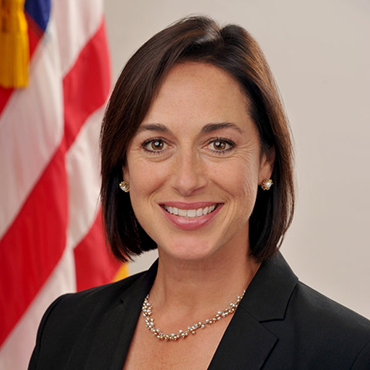DeSalvo makes business case for data sharing
The National Coordinator for Health IT emphasized three interdependent "drivers of success" for increased interoperability: a culture change around access to information, a business case for interoperability and the need for common standards.

National Coordinator for Health Information Technology Karen DeSalvo
Actual data sharing in the health sector lags behind both the state of technology and the known wishes of patients to have greater access to their own information. Karen DeSalvo, national coordinator for health information technology, thinks a shift to improved patient data sharing and increased medical record interoperability depends on an appeal to the business benefits, and on the implementation of common standards.
"We have been hearing very clearly that there needs to be a better case for sharing data," from a business perspective, said DeSalvo, at the Office of the National Coordinator Annual Meeting in Washington, D.C. "We've spent very much of this effort on creating a payment case in the health care environment."
In January, as part of a public-private sector partnership campaign, ONC asked health care companies that use electronic health records to pledge their commitment to greater consumer access to medical records, to implement national standards and not to block data.
To continue the push for increased market transparency, DeSalvo announced that ONC would post a detailed listing of "plain language information" aimed at providers trying to make health IT purchases. The data is drawn from required disclosures about user costs and data limitations that health IT developers must submit as condition of their ONC certification.
"This is a way to make sure folks know what they're purchasing, know what they're not, and create a better platform for a transparent marketplace," said DeSalvo.
DeSalvo also emphasized that national standards for terms would reduce confusion by ensuring that clinicians everywhere are using the same language and are on the same page in terms of privacy and security expectations.
"We want to move to a place where we're working off the same language, so that there's not the added work and expense and sometimes frustration of not having federal recognized national standards… that can advance the field," she said.
Part of increased transparency entails moving away from byzantine language for regulations that distracts from serving consumers and "can be confusing, especially for smaller practices," DeSalvo said.
She said the ONC's modernization efforts and the ONC's push for a culture change towards data sharing rely on the public sector's working relationships with private entities.
"We cannot, will not and should not do this alone," DeSalvo said. "This requires strong, continued partnership from those who are already invested, requires making the tent big enough for consumers, now for more investigators and researchers who want to be a part of this new journey, as well as entrepreneurs."





